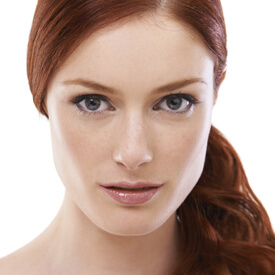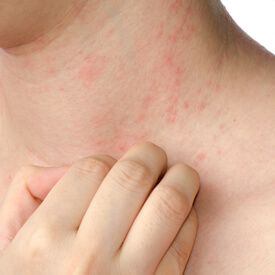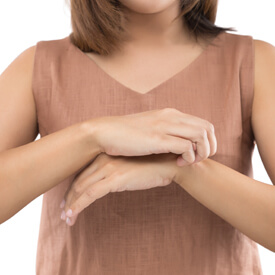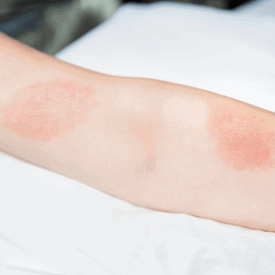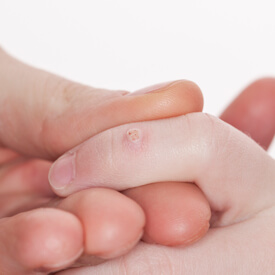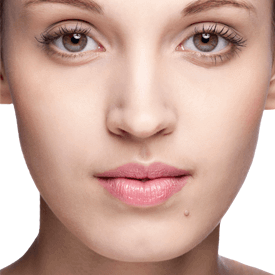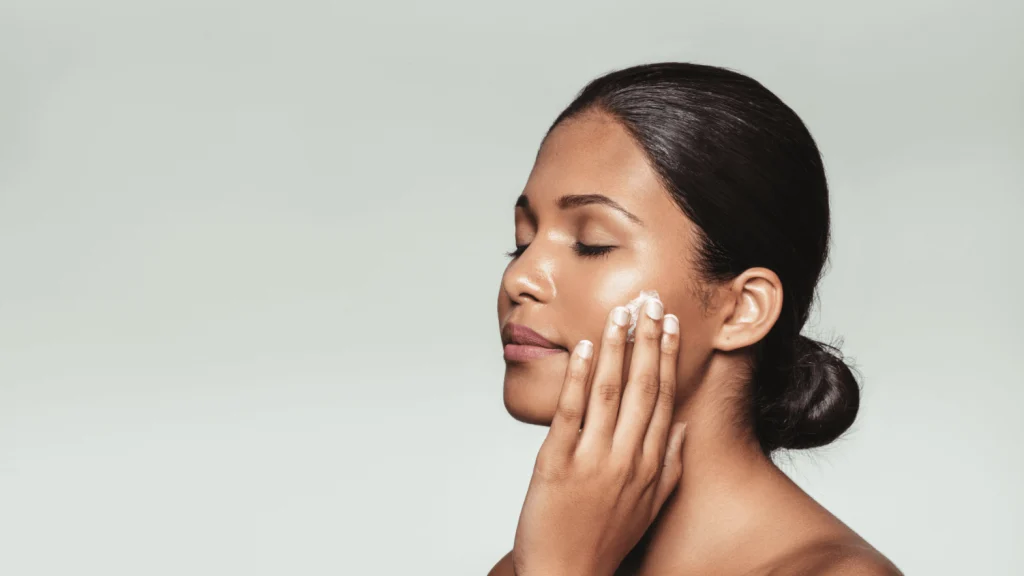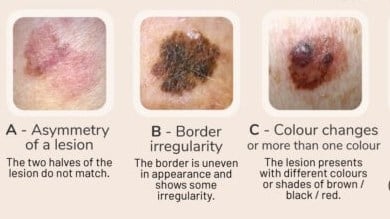Texture improvement, collagen production, minimized wrinkles, and anti-inflammatory properties are benefits of using retinoids!
Actinic Keratosis in Fort Washington, PA
ABOUT ACTINIC KERATOSIS
An actinic keratosis (AK) is a scaly, rough, crusty lesion that forms on the skin in areas that are exposed to the sun. It most often appears on the lips, face, scalp, ears, shoulders, and other frequently exposed areas. Most often, the areas of skin affected will have more than one lesion. Because of this factor, the plural of this condition is known as actinic keratoses. These lesions develop slowly over time and may disappear and reappear. They are often itchy and uncomfortable and may become inflamed. During a thorough skin assessment, Dr. Aradhna Saxena or a member of her professional medical team at the Dermatology and Skin Cancer Institute will analyze the lesion, sometimes utilizing dermoscopy. This skin condition is considered precancerous, so it can be a cause for concern. If not treated, it could develop into cancer. Removal of the lesion(s) will most likely be recommended and discussed during your examination. If you suspect that you have an AK lesion, schedule a consultation right away at one of our locations in Fort Washington, Lansdale, or Willow Grove, PA.
CAUSES
Extended sun exposure is the major cause of actinic keratosis, and it is more prevalent in older individuals, who have had more years of sun exposure and damage. While only a small percentage of AKs turn into skin cancer, it’s important to understand what this skin condition looks like and how to treat it. In a lot of cases, this skin condition shows up as lesions that look red and scaly or as bumps and dark, crusty areas that show up in a number of clusters that do not heal.
SYMPTOMS
When the condition first appears, it may only feel like rough texture on the skin. Sometimes this area will itch and become irritated. Over time, especially if it is exposed to more sun, the patchy area will turn red, scaly, bumpy, and inflamed and will continue to grow. The more the the lesions spread, the greater the chances are of developing skin cancer. Any warning sign should be checked as soon as possible by a professional so that treatment can be provided and future prevention discussed.
TREATMENT OPTIONS
Early intervention and treatment is important so that an isolated actinic keratosis (or keratoses) does not become skin cancer. The recommended treatment option will vary depending on numerous factors, such as your age and health, skin color, how widespread the condition is, growth characteristics of the lesion(s), location, etc. Frequently used treatment options include:
- Cryosurgery – this method uses liquid nitrogen to destroy the lesions by freezing them
- Electrodesiccation & Curettage – this technique removes the skin lesions by scraping the skin down to an unaffected layer
- Medication – certain medication can be helpful in reducing the appearance and volume of lesions and reducing the incidence of scarring
- Chemical peels – certain ingredients used in chemical peels can remove the top layer of unhealthy skin, stimulating new growth and replacing the damaged tissue
REVERSE SUN DAMAGE
If you have lesions that you believe may be related to sun exposure and could be actinic keratosis, we recommend calling a Dermatology and Skin Cancer Institute location in Greater Philadelphia to schedule your consultation. Almost all AKs can be eliminated if caught and treated early. Board-certified dermatologist Aradhna Saxena will provide a thorough analysis of your skin and suggest the best possible recommendation for a healthy, long-term outcome.


